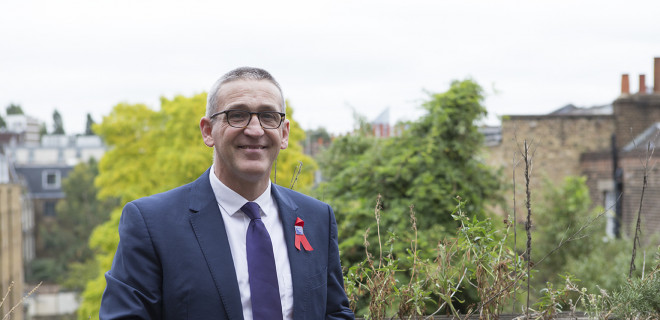Increasing HIV testing is the key recommendation of the HIV Commission, launched last December. As we look towards ending new cases of HIV within the decade, we need to learn from what is working on the ground, in particular testing initiatives.
The HIV Action Plan that the Government is currently working on must embed local success stories and provide support to scale them country wide. We need to shine a light on the great local leadership that’s happening in town halls and ensure councils have all the tools they need to play their part to end the HIV epidemic.
The leadership of Brighton and Hove City Council and local MPs have used National HIV Testing Week to put forward the city as a place eager to implement the routine, opt-out testing the HIV Commission was calling for.
The letter from the city’s political leadership to Health Secretary Matt Hancock says: 'With some of the new funds that we are sure [the Department for Health and Social Care] will make available, Brighton and Hove would like to put itself forward as an early implementer for the national aspiration of normalising HIV testing across health services – we are eager to get this underway and would be honoured to be the first to make it happen.'
This is really welcome. The city has been a shining example of embracing new technologies, such as installing HIV tests vending machines which have helped find people living with HIV who otherwise did not know their status.
Quote textIt's a great sign that Brighton and Hove is ready to go and we hope the Government will take advantage of their kind offer.
Signed by Phelim Mac Cafferty, Leader of Brighton and Hove City Council, Caroline Lucas MP, Lloyd Russell Moyle MP and Peter Kyle MP, the letter highlights that the city has 'some of the best online testing services in the country'.
The only way to make routine, opt-out HIV testing happen is new guidance and new funds. This is vital if we're going to find the 5,900 people in England who remain undiagnosed.
Brighton and Hove has the second highest rates of new cases of HIV each year outside of London and is home to a range of fantastic local organisations, including The Sussex Beacon, Martin Fisher Foundation and Lunch Positive, as well as our own colleagues who provide services across the city.
A key recommendation from the HIV Commission is for councils to develop individual action plans to reduce new cases of HIV by 2030 and achieve a 80% reduction by 2025. This will involve engagement with people living with HIV, the local voluntary sector, practitioners, commissioners and local leaders. Only together will ambition meet action.
The fact Brighton and Hove is ready to go is a great sign and we hope the Government will take advantage of their kind offer.
Read the full letter to Matt Hancock [PDF]
Ian Green is Chief Executive of Terrence Higgins Trust.



